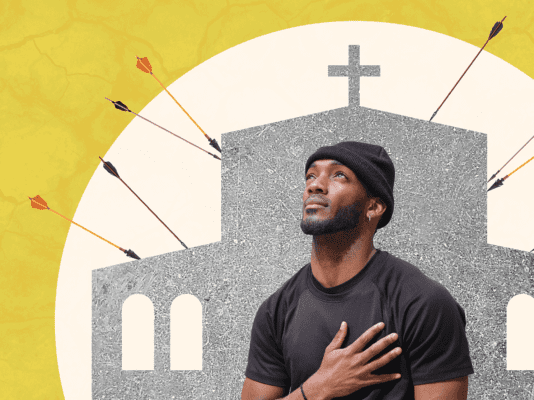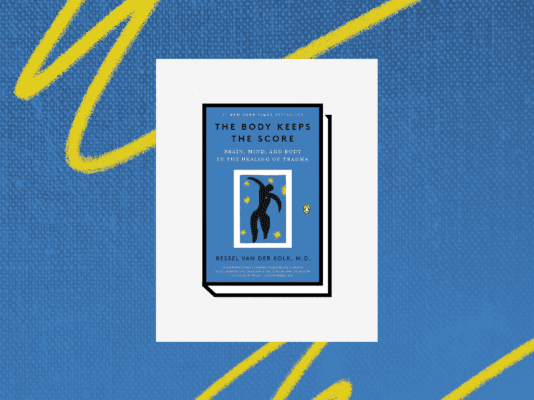When I met my mother-in-law for the first time, her toothless smile, poverty-stricken trailer, and hard-worn wrinkles, visually confirmed the preconceived notions I had developed about her. She was a matriarch symbol of the ailment of our nation’s time—drug addiction.
She was the woman who chose bottles of Jim Beam, bags of white powder, and abusive men over her children. She abandoned them at home for days at a time when they were barely out of toddlerhood, left them idling in cars while she traded sexual favors for a warm night in a hotel on Christmas Eve. She put them in grave danger, inviting questionable strangers into her bed, her addictions controlling her every move. Even as court orders and arrests got her to rehab every few years, the behavior therapy never worked.
She had done it to herself, but she was also lost in a situation of limited hope where mental illness and lack of opportunity, community, and faith created the perfect storm for her to fester in her addictions.
The childhood my husband survived was cluttered with neglect, abuse, and fear. And it’s a childhood too many are living out today due to the drug crisis ravaging small towns and big cities alike. The uptick of children in foster care is heartbreaking, the death tolls of their parents rising to levels of unspeakable tragedy.
No quick fixes
Important people talk about “solving” the opioid crisis like it’s a puzzle, like if we just get the right pieces in place, we’ll be able to save people from themselves. Billions of dollars and thousands of words, bolstered by the best of intentions, are written within a massive new, bipartisanly supported bill to address the growing epidemic. It passed in June almost unanimously and is predicted to pass the Senate in similar fashion.
Opioid addiction is spoken of like a cancer, like something that’s unstoppable or put upon someone without their participation in the act. Yet, the spiritual aspect of this ailment needs to be addressed, too. Though it certainly takes on a physical form, where does it begin, and what makes someone latch on to the numbing balm of drugs and alcohol? There are no easy answers.
I’m glad our public officials are addressing opioid addiction. Congress should be taking this seriously, but the responsibility does not lie with the government alone. This is an issue that also has to be solved by people, community, purpose, and faith. Otherwise we will fail many of the most affected individuals.
The church’s role
The church has been stepping in at this time of crisis, and we need even more of that as we battle a national illness that has no simple remedy. Church planting is one key to attacking the problem from all angles, and John Freed, pastor of Waterline, an Indiana church committed to church planting as a mission, affirmed this is part of the way he’s seeing it tackled in the state.
“Churches are on the leading edge of nonprofits that are making a difference for people in recovery,” he said in a phone interview. “I know that, for a fact, in our county, if you enter recovery, it’s probably affiliated with a church.”
While mega-churches still gain media attention, the majority of churchgoers attend churches of 500 or less, with 46 percent attending a church of 100 or less, according to Barna research. Even—and especially—in these small settings, the church can truly love and support those who are struggling. The importance of church planting in very concentrated areas can and will make a difference.
According to Lifeway research, the American church is now opening churches faster than it is closing them—and 42 percent of those worshipping at churches launched since 2008 previously never attended church or hadn't attended in many years. It’s clear there is a strong desire for church, and there is no doubt that areas affected by the opioid crisis are included in that.
Don’t forget the small towns
Church planting expert and director of the Billy Graham Center Ed Stetzer has noted that many church plants are focused on urban areas as more people move to the cities—but we musn’t forget those in smaller towns. These are the towns like my husband grew up in, where addiction and dead-end jobs, generational family dysfunction and poverty breed cycles of despair with little light to guide someone unfortunate enough to be born into it.
Blame for today’s drug crisis is tossed around like a hot potato. The blame is toxic, but it’s not serving to help people like my mother-in-law. Had she been reached by a greater, deeper good 30 years ago—one also focused on the root(s) of the issue rather than one of access—maybe she could have gained the purpose she needed or saved her children from experiencing the traumas that will haunt them for a lifetime. God calls us not only to the nations but to our neighbors and where the need is most potent. In America today, that need is magnified in the form of opioid overdoses.
When The Washington Post published a powerful series of stories last year about families dealing with addiction issues, it overwhelmingly illustrated that these people weren’t simply random casualties of failed government, but also self-destructive, hopeless, and lonely. It’s the spiritual and personal side that government simply cannot address in a tangible way. That takes people. That takes churches. That takes sacrifice, inconvenience, compassion, and discomfort for friends, family, and community.
The need for the church in our local communities, it seems, has never been so palpable. As Christians, it is our responsibility to love our drug-addicted neighbors. We should participate in our local churches and partner with government initiatives. And we ought to do more than read the headlines. In God’s strength, we must go make a difference in the lives of those in our communities.
Join the ERLC in Dallas on October 11-13 for the Cross-Shaped Family. This conference is designed to equip families to see that all of our family stories are shaped by the ultimate story of our lives, the gospel. Speakers include Russell Moore, Jen Wilkin, Matt Chandler, Eric Mason, Ray Ortlund, Beth Moore, Jamie Ivey, and many more. Register to attend today!









